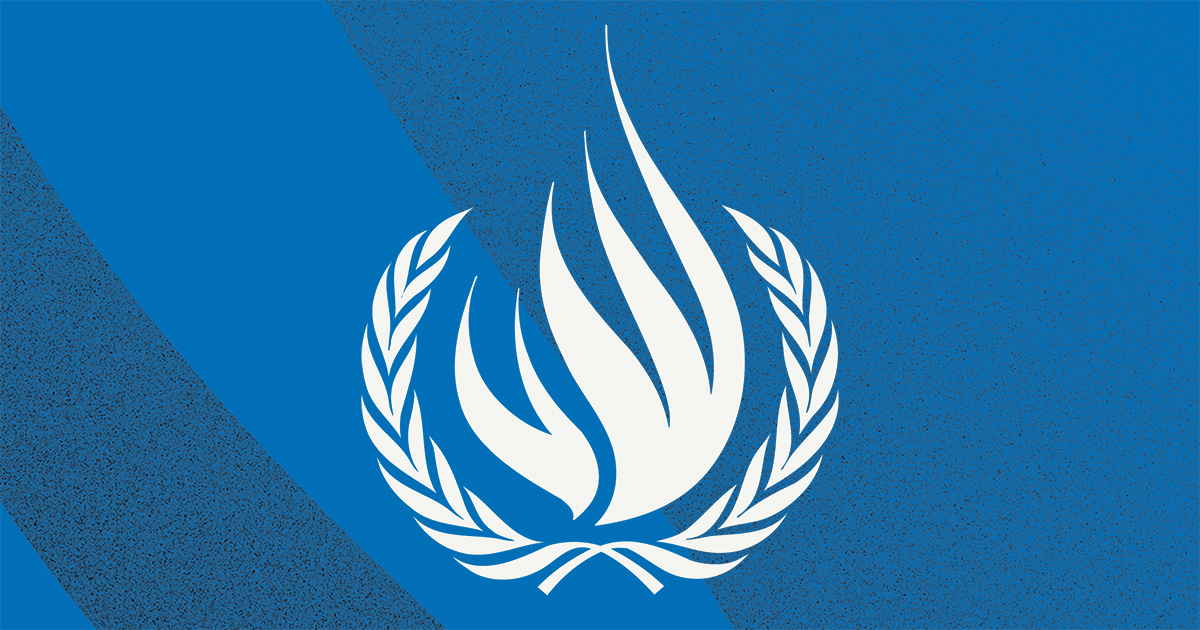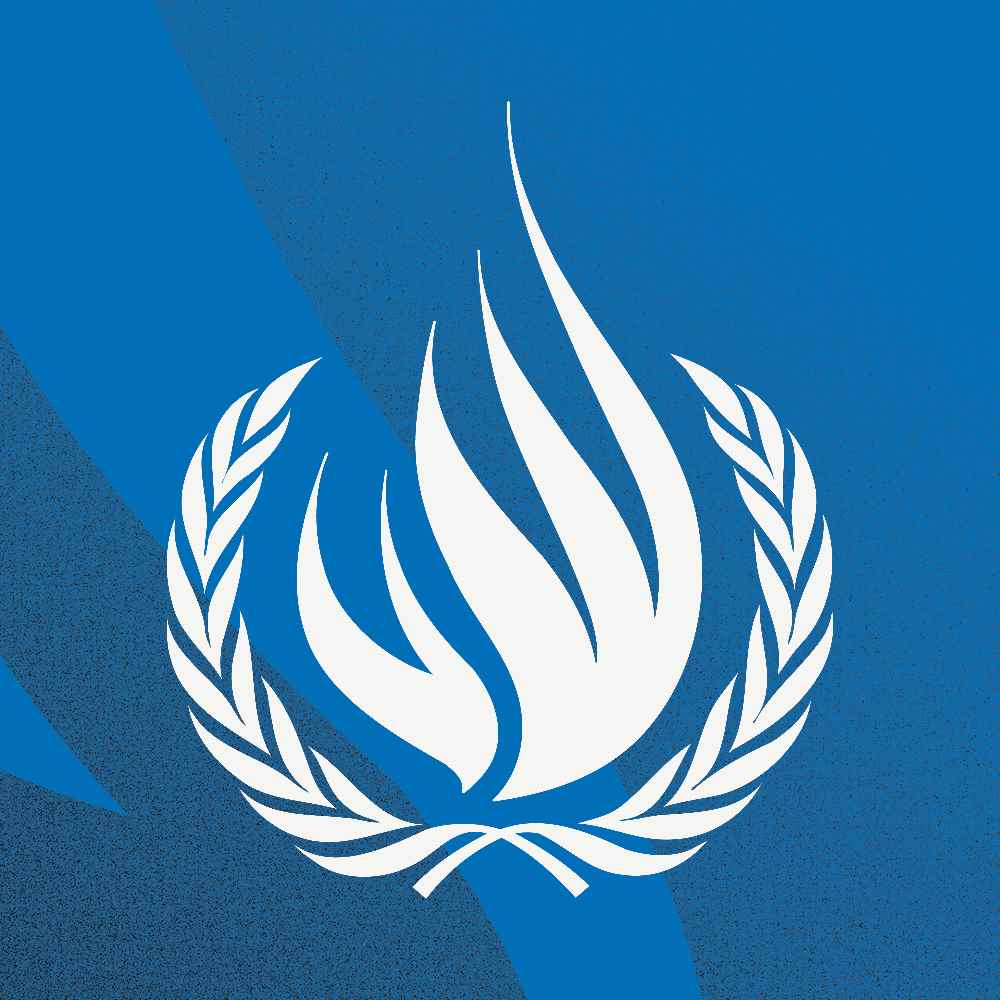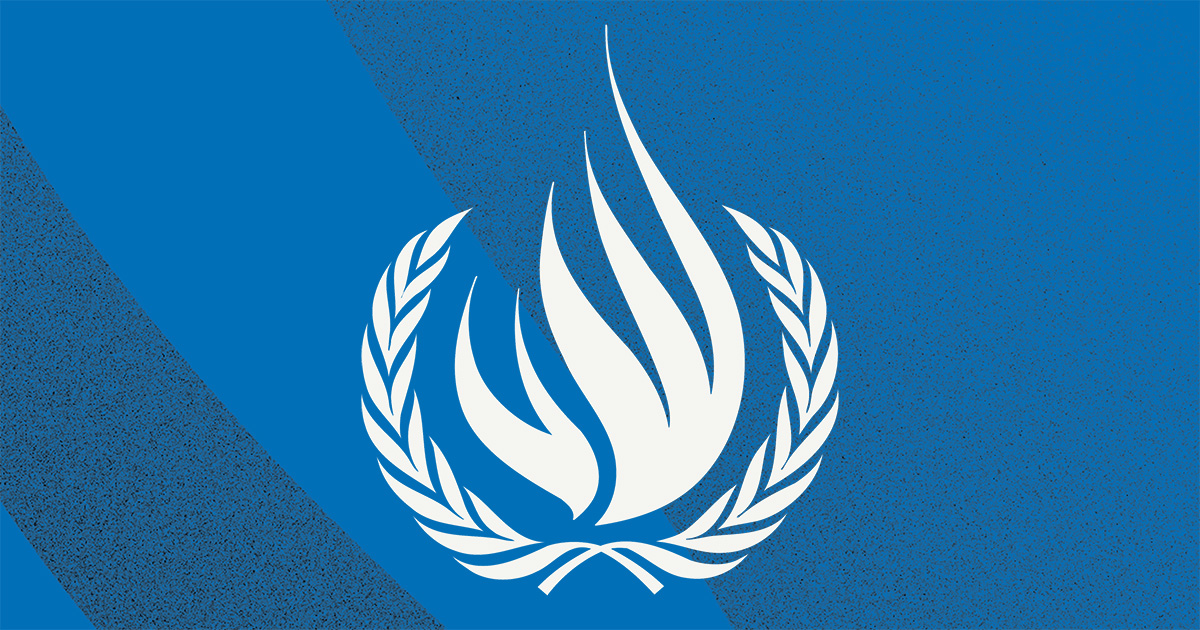
Volker Türk, UN High Commissioner for Human Rights
AT
University of Norway
LOCATION
Oslo
RELATED
STATEMENTS AND SPEECHES
Decades prove that human rights deliver solutions, Türk says
UPDATES
Marking the 75th anniversary of the Universal Declaration of Human Rights
STATEMENTS
For solutions, look to the Universal Declaration of Human Rights
The Human Rights 75 Initiative:
A solution-oriented approach to how the UN, UN member states and non-state actors can meet current and future human rights challenges
‘75 Years on: Anchoring Solutions in Human Rights’
Dear friends,
Thank you to the Norwegian Centre for Human Rights for this invitation.
I am delighted to be with you today at this distinguished university.
In just a few weeks we will mark the 75th anniversary of the Universal Declaration of Human Rights.
We do so at a moment that is replete with global challenges.
Each one formidable on its own. Together, they are potentially disastrous for every single one of us.
The recent surge of conflict in the Middle East springs to mind, though there are many other examples. Yet another cycle of violence and retribution – and intolerable human pain – is underway. First, the horrific and unjustifiable violence of the attacks on Israeli civilians which were launched from Gaza on October 7, including the taking of over 150 hostages, many of them children. Then the massive bombardment of Gaza, which has killed and wounded thousands of people, and the damage to Gaza"s largest hospital, amid a siege that has shut off electricity, water, food and fuel supplies for the entire population of the Gaza Strip.
The old machinery of violence and death keeps grinding across the bodies of Israelis and Palestinians. Israel has legitimate security concerns, as have Palestinians deep-seated grievances. But any response must comply with the laws of war and human rights law. There is no exception to this requirement. Millions of Palestinian civilians must not be forced to pay the price for the atrocities perpetrated by Hamas, no matter how shocking those atrocities have been.
And ultimately, action must be taken on all sides – including third parties with influence in this conflict – to bring greater justice and respect into this situation. Future generations of Palestinians and Israelis will either share the land in dignity and tolerance, or share it as piles of rubble and bodies. Israelis and Palestinians are each other’s only hope for enduring peace, and they have got to become able to live together, in respect of each other"s rights. Political leaders today need to break from vicious cycles of violence, torment and vengeance, and replace it with a vision for peaceful coexistence.
Elsewhere, also – in Ukraine, but also in terms of climate change, and migration-related issues - our future must be built around a core of justice. We need to learn to live together, in dignity and respect. We must step away from the increasing hostility, polarization and divisions that tear us apart.
We need to begin to weave a social fabric that is resilient and warm; a fabric that is richly colourful and diverse so that it binds us together, enabling us to more fairly share, and care for, this fragile and lovely planet and each other.
This core goal – and the steps which we can take to attain it – constitute the enduring significance of the Universal Declaration.
Let"s consider when this landmark document was adopted.
It was a time whose bleakness and uncertainty holds much resonance, I believe, with that of our own.
Seventy-five years ago, World War Two had just ended. Two brutal World Wars had been fought in the space of three decades, leaving a legacy of unprecedented bloodshed and devastation. Genocide had taken place through the most abominable system of mass murder. The atomic bomb brought destruction and death of a new kind and scale into the world. Millions of people were forced to leave their homes and take root in completely unfamiliar, challenging places.
And from every region of the world, countries came together to found the United Nations and craft a declaration to put an end to the unrelenting cycles of terror and destruction and poverty which they had endured.
In doing so they drew deeply from cultures and movements spanning every corner of our world and every era. From religious and philosophical traditions to the American and French Revolutions – but, also, the Haitian slave revolt, the labour movement, feminism, the fight against imperialism and the struggle against apartheid.
And they came up with a blueprint for governance. A text that made clear, for themselves and for future generations, the path away from war. The path towards reconciliation of disputes and the building of societies that would be fairer, more equal, and, so, more resilient.
They articulated our rights, inherent in each of us – you, no less than me.
The right to live free from any form of discrimination, arbitrary detention and torture. The rights to education and to adequate food; healthcare; housing; social protections, and fair conditions of work. Freedom of expression, opinion, and the right to privacy. Freedom of association and peaceful assembly, and to participate meaningfully in public affairs. Freedom of religion or belief. The right to asylum and the right to a nationality. And more.
This landmark document, the most translated in history, has guided tremendous progress in every region of the world.
Many structures that perpetuated severe racial and gender discrimination were dismantled. Previously unimaginable advances in education and health have taken place. The need for governments and institutions to listen to, inform and fully involve people in decision-making has been made more apparent.
Many countries took back their independence.
And people resoundingly took back their rights. Perhaps most important of all, the Universal Declaration inspired a vibrant, creative, powerful activism and solidarity, empowering people everywhere to stand up for their rights and to engage actively in their communities and societies.
This activism, grounded in lived realities, has formed the impetus for the development of our international human rights frameworks. It has underpinned efforts to eradicate other forms of discrimination, including against LGBTI+ people, and to secure recognition of the right to development and the right to a clean, healthy and sustainable environment. The commitment and vision of civil society has also helped drive the adoption of numerous treaties, laws and other instruments to advance and protect human rights, including the Declaration on the Rights of Indigenous People.
There is no doubt in my mind that the human rights ideal has been one of the most animating and positive movements of ideas in human history – and, overall, one of the most successful.
It is one we must come back home to now at this moment of uncertainty, turbulence and threat.
Conflicts are surging. We are confronted by the highest number of violent conflicts since 1945 with one quarter of humanity estimated as living in places affected. And, as so horrifyingly illustrated over the last few weeks in the full-blown hostilities in Israel and the Occupied Palestinian Territory, these wars and conflicts are pitiless, with scant respect for the protection of civilians.
Racism and discrimination – in particular against women and girls – is disturbingly on the rise, with determined attempts to unpick the real progress made in recent decades. Antisemitism and Islamophobia are all too prevalent with deliberate provocations, such as deplorable incidents of burning the Quran, designed to stoke tensions between communities and countries.
The global development agenda, with its promise to end extreme poverty by 2030, is struggling – in part due to spiralling food and fuel prices as a consequence of Russia’s war against Ukraine.
Digital platforms have become conduits for disinformation and for vicious hate speech against women and girls; people of African descent; Jews; Muslims; LGBTIQ+ people; refugees and migrants; and many people from minority groups. Unregulated digital advances in artificial intelligence, autonomous weaponry and surveillance techniques make us vulnerable to new and profound threats to human rights.
And, in more and more countries, severe restrictions on civic space undermine institutions of justice; independent media; and the space, more generally, for everyone’s fundamental freedoms.
All these trends fuel the pervasive, existential menace of the triple planetary crisis, undoubtedly the defining human rights threat of our generation.
And they feed into anxieties about the future – something I feel many of us struggle with to some degree - a troubling sense of options narrowing.
This is true above all for young people. For these powerful trends will surely impact all of your aspirations, your careers – indeed, the whole arc of your lives, as well as those of generations to come.
I am here today, though, with a clear message - one of hope and of action.
The pathway to manage and resolve these profound challenges already exists.
It is captured in the map set out for us in the Universal Declaration of Human Rights.
This pathway requires all peoples and all States, including Norway, to play their part, but the route is clear and pragmatic.
Greater respect for human rights – all human rights ¬– is the only foundation for more sustainable development and peace. This is a simple but extraordinarily powerful truth.
Societies anchored in human rights are better equipped to withstand shocks – whether those stem from natural disasters, conflicts, a pandemic or global recession.
They are also the only ones whose laws and institutions can be trusted to resolve disputes and advance social and economic stability.
Inclusive economies and societies - in which opportunities, resources and services are equitably shared and where governance is accountable - deliver justice, opportunities, connection and hope.
Free and independent media, along with freedom of expression, association and peaceful assembly, contribute to better informed decisions. These rights also give everyone, including young people, a feeling that they have a stake and a voice in the common good.
Similarly, no country can truly flourish, economically or otherwise, if many people are barred from opportunities. The rights to be free from discrimination, and to have equal access to resources and opportunities, benefits society as a whole.
These values, the shared conviction that every human being is equal in dignity and in rights, lies at the core of the United Nations, acting as the golden seam that connects all of our work - from conflict prevention to peacekeeping, humanitarian, development, good governance and beyond.
Last month, a survey of over 36,000 people in 30 countries by the Open Society Foundation, confirmed what we already know from our daily engagement with diverse communities and individuals through the work of my Office.
It found that 72% of those surveyed believed human rights to have been a “force for good” with a similar number considering these principles to reflect their own values.
But, concerningly, it also uncovered a widespread disillusionment amongst young people with the capacity of democratic politics to solve issues, and I think this finding is absolutely critical.
To build trust in Government, it is vital that Governments demonstrate their ability to deliver fair and effective solutions.
Enlightened self-interest, in itself, should encourage the embedding of human rights at the core of policy and governance - as the only sustainable route for Governments to meet effectively the needs of their people.
Consider the core ingredients necessary for solutions today, within our societies and across our global community.
First, we need to overcome geopolitical divisions, through a common language, and a sense of common goals. An approach that is ideologically neutral, but which engages the deep, shared values of humanity.
Second, solutions for the myriad of challenges must be consistent with each other. Efforts to advance sustainable development must also mitigate climate change and tackle systematic discrimination. If one initiative undermines another, the result is a chaotic waste of time. But if one solution can build on another, we’re making progress.
Third, solutions need to engage our deepest reflexes: solidarity and empathy. Today, the people with the least are being hurt the most. In terms of a just transition, for example, this demands that the voices and interests of affected individuals and communities, including Indigenous Peoples, are at the centre of shaping policies and action to end fossil fuel dependence. And, in the case of refugees - amongst the most vulnerable of all - every State should be living up to its responsibilities to provide asylum, recognising that the countries and communities with the least resources are the ones who host the vast majority of people displaced by persecution and conflict.
Fourth, effective solutions will also need the full contributions of every member of every society. Free and meaningful participation by all is essential to bring about concrete change. We need to draw on the creativity, the skills and the critical insights of everyone, especially those who have been marginalized. Governments must redouble efforts to reduce tensions and divisions within society that risk excluding so many from public life. This includes concerted measures to tackle the rise in racial and religious hatred. And in every aspect of decision-making, it is vital to build bridges between people – especially the people most affected – and the institutions of Government and businesses.
What we need, in short, is the Universal Declaration of Human Rights.
A profound articulation of our universal values whose guidance has been tested over and over again - and proven itself to be both pragmatic and resilient.
The Declaration shows us not just how humanity can survive – but also how it can thrive, both today and in the future.
I hope that this 75th anniversary will be remembered as much more than a moment of reflection.
Let it be the turning point that renews our dedication to solving challenges through human rights.
An opportunity to recapture the spirit that led to the Declaration’s adoption, and to project this into the future.
Equipping each of us to play a meaningful role in shaping solutions, through channelling its inspiring vision.
The Human Rights 75 Initiative that my Office is leading will culminate in a high-level event on 11 and 12 December.
I encourage the Norwegian Government, along with Norwegian businesses and civil society groups, to step forward with significant, catalytic pledges on specific human rights action that can generate the transformative changes that we so urgently need.
Human rights matter at any time, of course, because people will always matter.
But these laws and principles are especially vital in times of crisis – when the future is anxious, discord reigns and answers appear elusive. It is then that core values, and the lessons of history, can steer us decisively back onto the right course.








